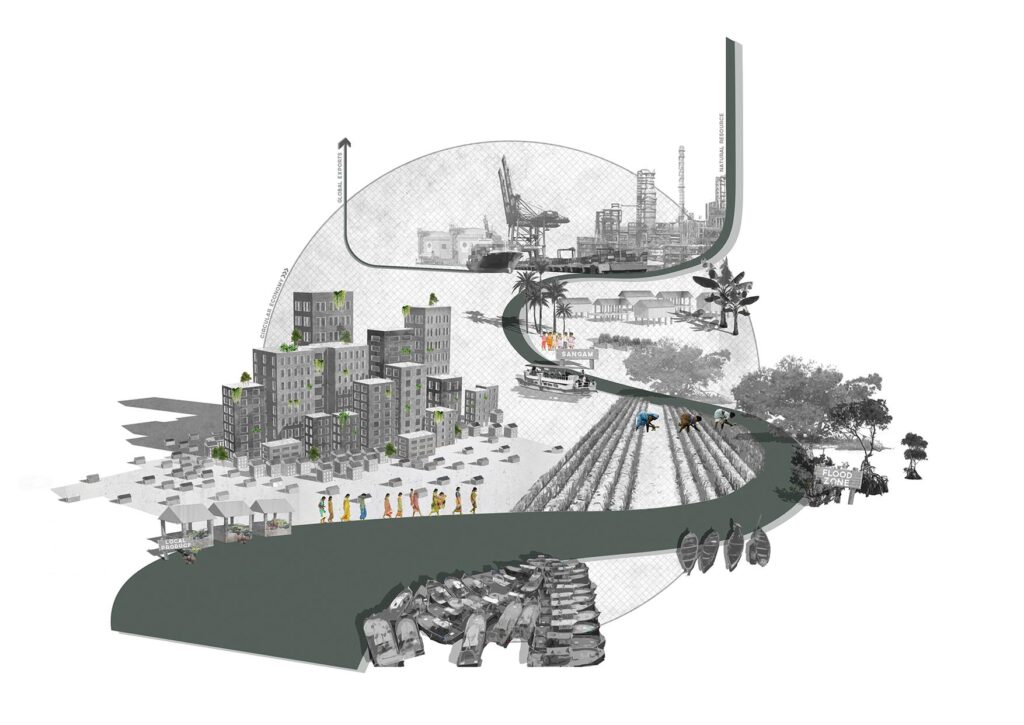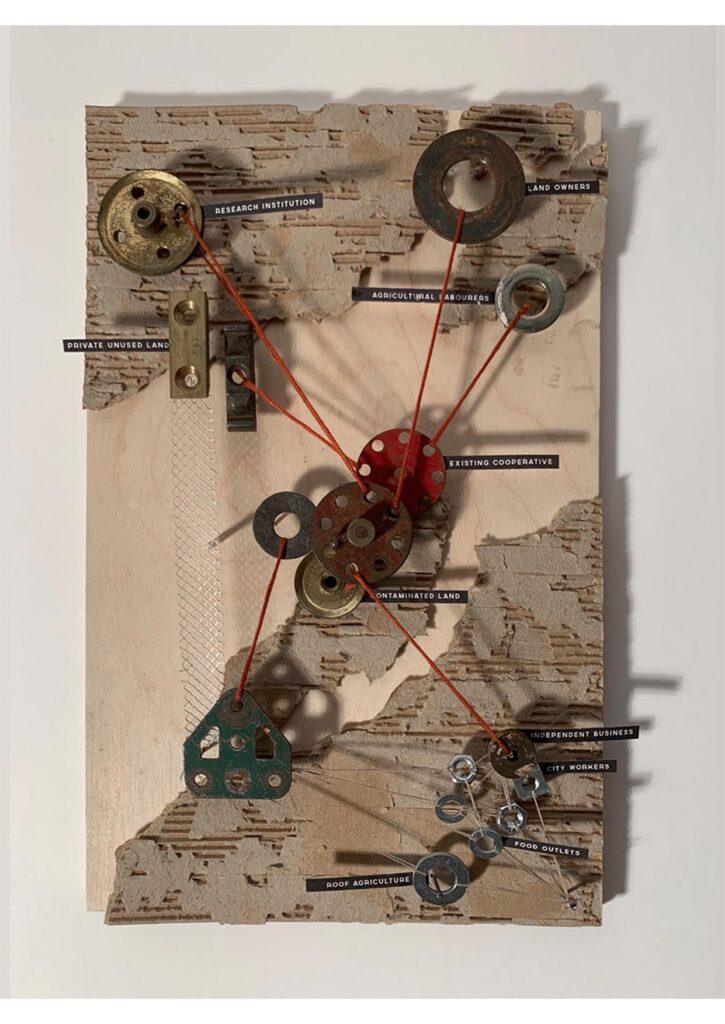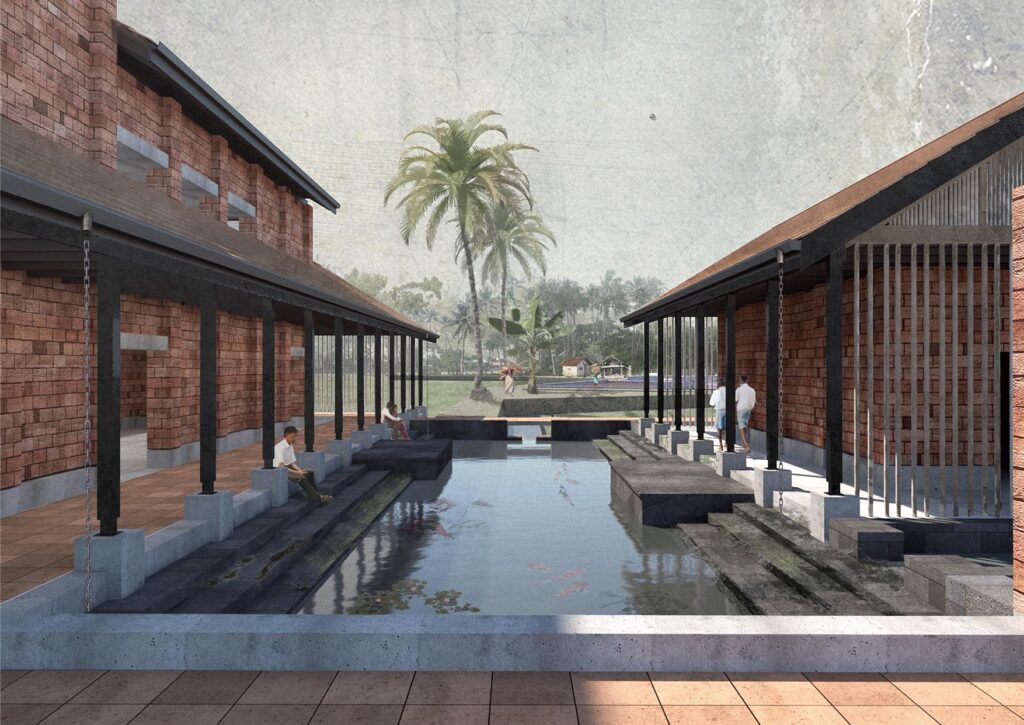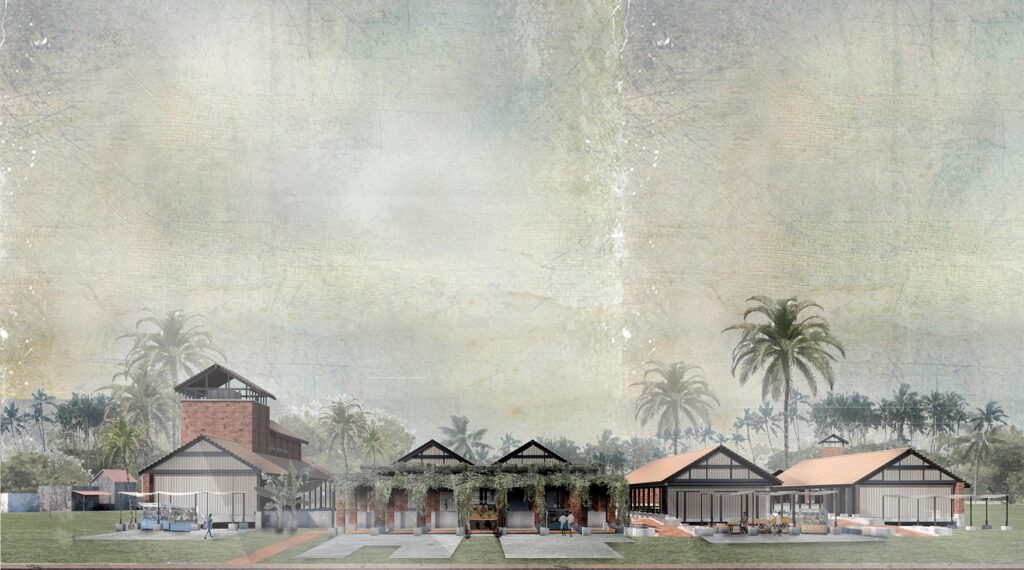“THE COOPERATIVE CITY”
The city of Kochi is rapidly transforming into a commercial and industrial hub, leaving behind its once thriving rural economy. Developments see citizens physically displaced to the city’s periphery, many of whom are from the agricultural community. The natural environment suffers at the hands of urban sprawl; altering the ecological landscape resulting in the degradation of natural resources that the city and many livelihoods depend on. Putting ecological preservation and supporting agricultural livelihoods at the centre of a circular economy aims to revive Kerala’s agricultural heritage in attempt to achieve food security and engender social change.
Use of an agricultural cooperative as an urban catalyst aims to empower citizens and communities to become their own agents of change, inspiring bottom-up investment in urban decisions. This can be achieved by drawing on the fragmented physical and social resources from around the city. Citizens can be [re]connected to their environment and to each other, placing emphasis on locality and a mutual dependency with nature. Sangam Centre of Agriculture provides a base for resources to be shared; offering support to the agricultural community and citizens alike so their livelihoods and the environment can be managed and maintained effectively. The sites spatial experience is dictated by the Pokkali rice process, an endangered indigenous species, aiming to engage the user at all stages from conservation, cultivation, commerce and consumption. Standing in the face of industry, the site guards the Pokkali fields as they demonstrate how use of the city’s flood plains are critical to meeting the demand for food, protecting the city from flooding and providing job security for the agricultural community. The site eases the urban to rural transition; inviting citizens to return to the natural landscape to be immersed in a dialogue with agriculture as a tool for ecological preservation, food security and social mobility.

Utilising the city’s natural resources aims to revive agricultural heritage and support local businesses, generating the means for a circular economy to retain profit in the city, leading to better urban services for all.

Fragmented physical and social resources from around the city are collated to encourage the exchange of knowledge and resources; eventually fostering a mutual dependency that benefits all participants.

Spaces that gravitate around natural resources encourage interaction between people and nature while the built fabric frames the Pokkali fields to elevate their importance.

The Pokkali Gateway becomes an important threshold that eases the urban to rural transition.
WEBSITE: https://beckymayo.myportfolio.com/
CONTACT EMAIL: beckyjmayo@gmail.com
LINKEDIN: https://www.linkedin.com/in/becky-mayo-6b694013b
Curated By Shannan Kamalaneson
